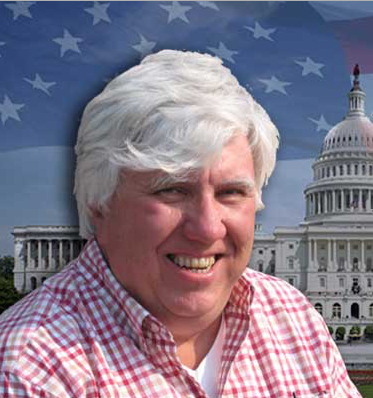Way back in 1934, the New York Giants baseball team (yes, children, the Jints used to play in the Polo Grounds at Coogan’s Bluff, look it up), skippered by Hall of Famer Bill Terry, was favored to win the National League pennant.
In a preseason interview, a reporter asked Terry to assess the chances of the Giants’ moribund rivals, the Brooklyn Dodgers (yes, look that up, too).

“Brooklyn?’’ Terry responded jocularly. “Is Brooklyn still in the league?’’
A similar question can now legitimately be posed about Sen. Rand Paul, (R-Kentucky), the celebrated “most interesting man in politics’’ per Time magazine, whose once promising campaign to become president of these United States has plunged from the penthouse to the basement in near record time.
Is Rand Paul still in the race?
Well, yes and no. The man from Bowling Green with the naturally curly hair to rival Frieda in the old “Peanuts” comic strip is still going through the motions. He can occasionally be spotted on the debate stage with the multitude of other candidates seeking the Republican presidential nomination but he quickly transform into Griffin, the protagonist in Wells’ The Invisible Man.
Paul is still raising money, but not as much as many of his rivals, and making pronouncements that fewer and fewer folks are heeding as the primary field slowly whittles down. His most notable recent act involves the campaign forking over $250,000 to the Kentucky Republican Party to help fund a presidential caucus in the commonwealth as opposed to a primary, a dubious enterprise intended to get around a statute that prohibits a candidate from appearing more than once on the same ballot.
The polls, it’s fair to say, aren’t very encouraging. A CNN/ORC survey, conducted Sept. 17-19, places him eighth in what is now a 15-candidate field, drawing a paltry 4 percent of the vote, not exactly the sort of number that places you in playoff contention. He trails the front-runner, human compost heap Donald Trump, by 20 points.
In Iowa, the site of the first-in-the-nation caucuses, where Paul was once thought to be a contender, a Public Policy Polling survey released Sept. 22 shows him running ninth, tied with — now get this — Louisiana Gov. Bobby Jindal, which is rather like being tied with a one-legged man in a butt kicking contest.
In fact, the poll shows both Paul and Jindal running behind Wisconsin Gov. Scott Walker who, in an unexpected showing of good sense, has abandoned his disaster of a campaign and returned to his regular job of ruining the Dairy State.
Actually, the Walker and Paul campaigns have taken similar paths. Both entered with great expectations – a Quinnipiac poll in the summer of 2014 showed Paul as the pre-race leader, Walker held a big edge in Iowa and was running second to Trump nationally when he kicked off his campaign. Both initially excited conservatives only to experience sudden drops in popularity, barely qualifying for the second debate stage. Neither raised enough money to stage a hallway decent campaign for Ludlow City Council and both ultimately became lost in the shuffle.
The difference is Walker got out while the gittin’ was good. Paul appears destined to remain until, as Bill Clinton once famously said, till the last dog dies, owing to a combination of hubris, fantasy, misguided notions about what’s good for the nation and new rules instituted by the Republican National Committee in wake of the party’s 2012 failure that empowers candidates like Paul to string along.
Three years ago, it should be remembered, Republicans thought they had President Obama by the scruff of the neck and were positioned to give him the old heave-ho, only to see GOP standard bearer Mitt Romney lose by about 5 million votes.
Rather than draw the reasonable conclusion that the party might want to go about changing its business plan to attract more Latinos, African-Americans and single women, Republicans decided it was really the process keeping them out of the White House. Fewer debates, a tighter caucus and primary schedule, permitting states to switch to a winner-take-all delegate system and a July date for the nominating convention in Cleveland (of all places) were intended to shorten the always divisive campaign season, permit GOP voters to settle on a nominee early on, save money and extend the time the party’s choice has to attack Democrats.
But the party failed to anticipate an initial field of 17 for 2016 that more closely resembles a cavalry charge than a slate of candidates. Some of those contenders who might have otherwise thrown in the towel now feel a shorter primary season might provide them with an opportunity to grab lightening in a bottle. The Supreme Court’s Citizens United decision, which essentially permits moneyed interests to purchase a candidate openly in the public square, will keep also-rans in the race well beyond their usual expiration date, permitting stragglers to continue the hunt while so-called super-pacs do the dirty work.
The result is a mess for the party, with Trump and Dr. Ben Carson, whose qualifications for the job are he doesn’t much like Obama and his willingness to make asinine comments that fire up the dead-enders, leading the pack with Iowa only a bit more than four months away.
Unless the current list of 15 candidates whittles down to, oh, about five early in the primary season, say about March 1, one of two things that never were supposed to happen could conceivably occur – either Trump captures the nomination or there’s a brokered convention.
Of the two, a brokered convention is most likely. Despite his money and bravado, if that’s what you choose to call it, Trump faces a monumental task attracting the 1,191 delegates at the Cleveland convention necessary to grab the nomination. He’ll obviously win some, but powerful forces within the party already are aligning to assure he comes up short.
The problem is with such a large field containing so many legitimate candidates it’s going to be hard for anyone to reach the magic number. Very few – former Florida Gov. Jeb Bush, perhaps, maybe Sen. Marco Rubio, R-Forida, or Sen. Ted Cruz, R-Texas – have even an outside chance.
That’s what contenders like Paul are counting on. Paul has no better chance of winning the 2016 Republican nomination for president than the Cincinnati Reds do of winning the World Series (I think I used this joke in an earlier column, but it just feels so good to say). A brokered convention would provide Paul with an opportunity to wheel and deal, gain concessions, promises, maybe a cabinet post or he could look good as vice president on the ticket – anything to keep him from returning to the job of U.S. senator representing the commonwealth, which he obviously has little interest in doing.
In a deadlocked convention, who knows? He might even emerge as a compromise candidate for president.
Paul can take some solace from that 1934 Brooklyn Dodgers team. It wasn’t very good, finishing sixth in the eight team National League. But it did succeed in knocking the Giants out of the pennant race, beating them the last two games of the season at the Polo Grounds and opening the door for the St. Louis Cardinals, the old Gas House Gang.
As James Thurber said, “You could look it up.’’
Washington correspondent Bill Straub served 11 years as the Frankfort Bureau chief for The Kentucky Post. He also is the former White House/political correspondent for Scripps Howard News Service. He currently resides in Silver Spring, Maryland, and writes frequently about the federal government and politics. Email him at williamgstraub@gmail.com.


















